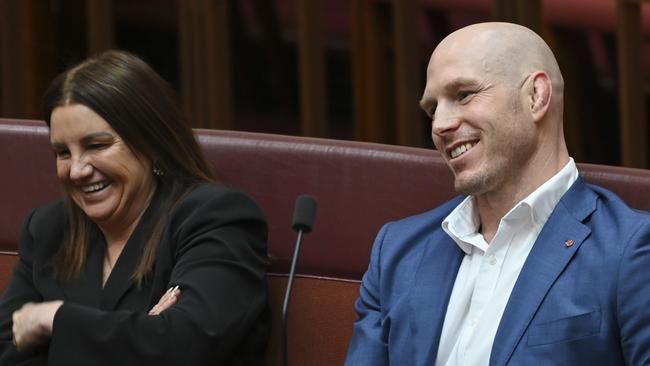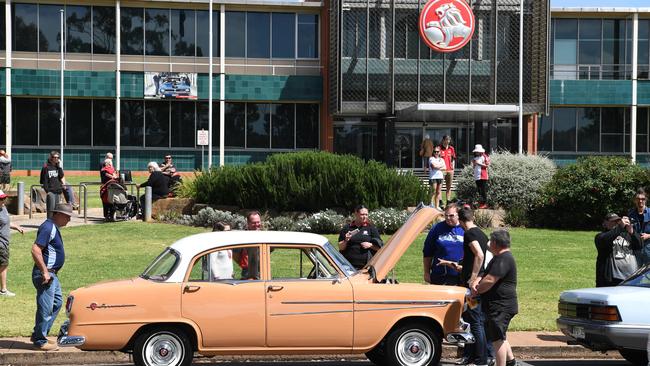Why the Abanese government’s IR bill should be delayed and investigated: Robert Gottliebsen


Sadly, most of the so-called independents in the Senate didn’t concern themselves with the details, but simply appear to have done deals with the ALP government in exchange for some future favours.
But two independent senators – David Pocock from the ACT and Jacqui Lambie from Tasmania – have not sold their souls and so family businesses, the employment powerhouse of the nation, need to hope that Pocock and Lambie first delay the bill and then investigate it more closely.
In the Coalition government days, Lambie showed she was not a push over. Pocock was elected for the first time in the May, but is already showing that he is converting the talents he developed as captain of the Wallabies into the role of a true independent in the Senate.
Both Pocock and Lambie are smart enough to know that when the government of the day (Coalition or ALP) suddenly wants a complex bill passed quickly, there will always be a hidden agenda.
The hidden agenda in the industrial relations bill is the desire of the union movement to vastly increase its member numbers and return to the glory days when management in most major enterprises succumbed to the power of union officials in accordance with the terms of the enterprise agreements.
When managers no longer manage, it usually creates much higher costs and unless there is a substantial tariff or subsidy protection it can send a business to the wall.
There is no better example of this phenomena than the tragic closure of the Australian motor industry.
The work practices in the motor industry were created via bad enterprise agreements, which substantially boosted costs via demarcations and union power.
For decades, governments understood these costs would be covered by a government subsidy. But when the Coalition government announced its intention to withdraw the subsidy, the only way major motor companies could continue to operate was to strip the enterprise bargain agreements of the costly demarcations and work rules.

I well remember long conversations with former General Motors’ Australian executives who knew that unless the GMH enterprise agreement was changed, then both the workers and the executives themselves would lose their jobs.
The executives pleaded with the unions and the workforce and finally convinced them to change the agreements, but it was too late.
A short time earlier, the General Motors board in Detroit had decided to pull up stumps in Australia and would not change the decision. Once General Motors decided to shut, Toyota had to follow. Ford had already withdrawn because of the labour rorts.
A similar agreement in Whyalla put the Whyalla steel works into administration. And in the current tugboat dispute, past executives of the Danish owned tug boat giant Svitzer agreed to an enterprise agreement from hell.
Smaller tug operators in a number of ports have workers who operate efficiently and are mauling Svitzer. Unless Svitzer can negotiate an efficient agreement, it will be put out of business. If the IR bill becomes law, they will want the Switzer agreement the tug industry standard, so hitting the smaller competitors.
In recent decades, companies have found ways to eliminate bad enterprise agreements or work around them.
Often, they are able to convince unions not to enforce their rights in exchange for high levels of union membership in the enterprise.
The arguments are not about wage levels, but flexibility in the workplace and the ability of mangers to manage.
In Australia at present, many family enterprises can compete with large companies that have better economies of scale because the family businesses without such enterprise agreements are able to more efficiently manage their workforce.
In the proposed legislation, a family enterprise employing more than one hundred people will have a high-cost enterprise agreement stuffed down its throat. Inevitably, it will lose its competitiveness.
Family enterprises may try to follow their giant competitors and quarantine union pressure by encouraging all staff to become union members, but the advantage will be lost.
The current industrial relations bill has many other agendas, but the anti-family business agenda could be moderated if the enterprises with say less than 300 people (100 is too small) employed can’t be forced into an enterprise agreement.
Of course, that does not help low-cost grocery groups like Aldi, who operate with a cleverly-designed efficient labour system. They will have their cost base transformed by a high-cost enterprise agreement. Prices will rise.
Assuming there is a senate inquiry into the bill, Pocock and Lambie need to make sure major family businesses, including the owners of supermarkets are encouraged to make presentations to the Senate committee. And of course, super-efficient retailers like Aldi should also be subpoenaed.
In the union movement, they can see that if standard industry enterprise agreements return their membership numbers will skyrocket, and they will be well on their way to returning to the glory days.
The nation has a lot riding on Pocock and Lambie, but I am confident that if there is a parliamentary committee, they will make sure the facts come out, and they will then make the required decisions in the national interest.





Most of the debate on the government’s radical new industrial relations bill has so far not addressed how it will severely impact a vast number of family enterprises in Australia, plus a number of low-cost major enterprises.